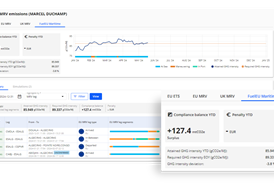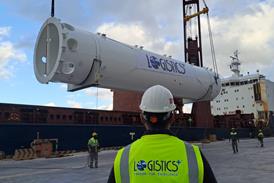November 18 - Port of Hamburg reports strong growth of eight percent in seaborne cargo handling with 89.4 million tonnes handled in the first nine month of this year.
General cargo, the dominant segment in Hamburg, showed marked growth of 8.6 percent, with a total of 60.2 million tons handled.
With a total of 5.9 million teu handled, the container segment recorded double-digit growth of 10.7 percent.
Handling of non-containerised general cargo reached 1.9 million tons (+4.8 percent) in the months from January to September 2010. This growth is largely due to an increase in exports of project cargo and vehicles, which were up by 22.9 and 15.4 percent, respectively.
For the year 2010 as a whole, Claudia Roller, CEO of Port of Hamburg Marketing expects an increase in container trade of more than 11 percent up to nearly 8 million teu. The total volume of seaborne cargo handled in the year 2010 as a whole is likely to confirm the positive trend of the first nine months, to reach more than 120 million tons, representing growth in a range between eight and nine percent.
Meanwhile, the Port of Rotterdam Authority has announced that it will give a once-only recovery rebate of three percent on the tariffs for sea and inland harbour dues in 2011.
The port says that the rebate is intended to support the companies in their further recovery from the crisis and in this way to strengthen the competitive position of the port complex further. The agreements are valid for all sectors represented by the port employer's organisation Deltalinqs in the "market consultation process harbour dues'.
Hans Smits, the Port of Rotterdam's CEO said: "We had an agreement for two years, but after the consultation of the market, it is agreed to give extra support. The crisis rebate of last year is now followed by a recovery rebate to enable our customers to land as smooth as possible." Wim van Sluis, Chairman of the employer's organisation Deltalinqs: "The port authority shows an open eye for the fact that the companies are still recovering from the enormous crisis and that the revenues are not yet at the old level."
















